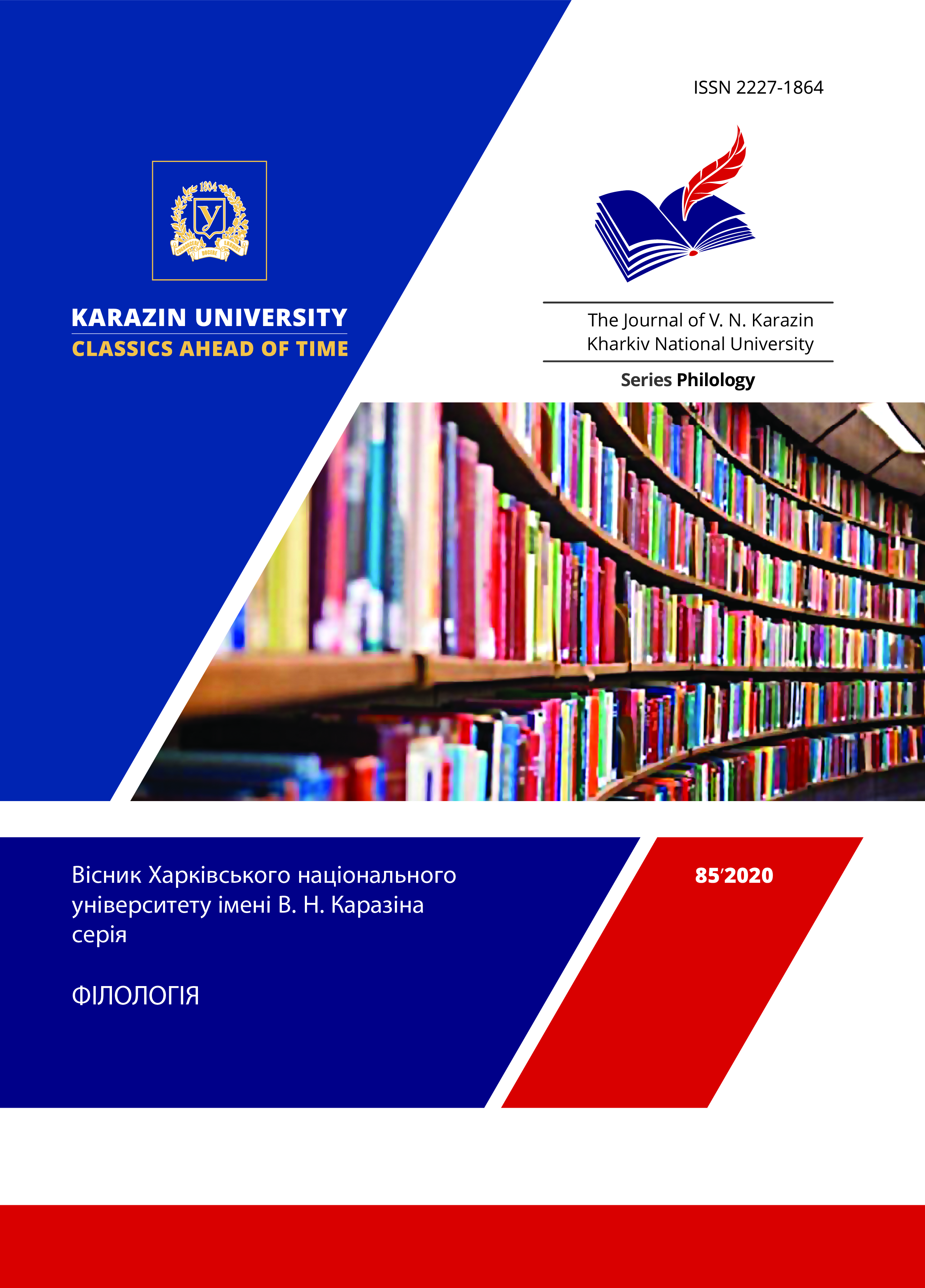The Ancient Greek adjective: semantic and grammatical features
Abstract
The article reveals the essence of an Ancient Greek adjective as a separate part of speech. Thus, the substantive nature of an adjective was examined, including the historical process of its separation as an independent part of speech, with a consequent emphasis on the inseparability of adjectives and nouns by external signs in Ancient Greek. The analysis of the Greek adjectives was made on the grounds of their semantics, morphological features, syntactic functions. The semantic analysis was based on the studying of such concepts as the categorial, word-building and lexical meaning. The categorial meaning is the attribution of an adjective. The smaller semantic-grammatical groups (qualitative, relative and possessive adjectives) were learnt with regard to word formation and lexical motivation. Word-building and lexical meanings were studied basing on the division of adjectives into primary units and derivatives. The meaning of a derivative is interpreted both: due to the analysis of its structure (paying a special attention to the compound units, which are mainly formed on the basis of word combinations), and due as to the relation (strong, weak, metaphorical) of the general meaning of a derivative with the meaning of its components. The word-formation meaning of such units, therefore, is syntagmatic. Their lexical semantics depend also on the context. The basic morphological categories of genus, number and case of a Greek adjective simultaneously indicates its semantic dependence on a noun. The category of degrees of comparison was analyzed on terms of morphological means and such syntactic features as left/right-side valence. The main primary (an attribute) and the secondary (as a predicative) syntactic adjective functions are equally realized in preposition or postposition to the noun in Ancient Greek.
Downloads
References
Aristotle (1978). Sochineniya: v 4 tomakh (Vol. 2). [Works: in 4 volumes] Moscow: Mysl’.
Vykhovanets, I. (1988). Chastyny movy v semantyko-gramatychnomu aspekti. [Parts of language in the semantic-grammatical aspect] Kyiv: Naukova dumka.
Vykhovanets, I., & Horodenska, K. (2004). Teoretychna morphologia ukrainskoyi movy: Akadem. grammatyka ukrainskoyi movy.[Theoretical morphology of Ukrainian language: academic grammar of Ukrainian language] Kyiv: Pulsary.
Vyshyvana, N. V. (1999) Prykmetnyky ocinky v nimeckiy movi. [Adjectives of estimation in German language] [PhD Thesis], Kyiv : KNU.
Gryshchenko, A. P. (1978). Prykmetnyk v ukrainskiy movi. [Adjective in Ukrainian language]. Kyiv: Naukova dumka.
Gryshchenko, A. P. (1975). Prykmetnyk u funkcii holovnoho komponenta v slovospoluchenni. Syntaxys slovospoluchennia i prostoho rechennia. [Adjective in the function of the main component in the word combination. Syntax of word combination and of simple sentence]. Kyiv: Naukova dumka, pp.120-131.
Dryevnyegrecheskiy yazyk: navchalnyi kurs (Vol. 1) (2002). [Ancient Greek: the studying course]. Moscow: Greko-latinsky cabinet U. A. Shychalina.
Kononenko I.V. (2009). Prykmetnyk u slovianskykh movakh. [Adjective in Slavic languages]. [monograph]. Kyiv: Kyiv University.
Kostusyak, N. M. (1998). Katehoriya stupeniv porivnyannya u gramatychniy systemi ukrayinskoyi movy. [Category of degrees of comparison in the grammatical system of the Ukrainian language]. Kyiv: NAN of Ukraine.
Petryshyn M. J. (2005). Semantychne pole prykmetnykiv rozmiru u starohreckiy movi (na materiali homerivskoho eposu).[The semantic field of adjectives of size in Ancient Greek (based on the material of Homer’s epos)]. [PhD Thesis], Lviv : LNU.
Potebnya, A. A. (1968). Iz zapisok po russkoy grammatike (Vol. 3). [From notes on Russian grammar]. Moscow: Prosveshchenie.
Ufimceva, A. A. (1986). Lexicheskoe znacheniye: Princip semiologicheskogo opisaniya lexiki. [Lexical meaning: The principle of the semiological description of vocabulary]. Moscow: Nauka.
Shramm A. N. (1979). Ocherki po semantike kachestvennykh prilagatelnykh (na material sovremennoho russkogo jazyka) [Essays on the semantics of the adjectives of quality (based on the material of the modern Russian language)] [monograph]. Leningrad : Izd-vo Leningrad. un-ta.
Brugmann, K. (1904). Kurze vergleichende Grammatik der indogermanischen Sprachen. Strassburg: Trübner.
Corpus Grammaticorum Latinorum (ed. A. Garcea, & V. Lomanto) [online resource available from http://kaali.linguist.jussieu.fr/CGL/text.jsp].
Richards, G. C. (1918). Greek compound adjectives with a verbal element in tragedy. The Classical Quaterly, 12(1), pp.15–21.
Schwyzer, E. (1950). Griechische Grammatik, 2: Syntax und syntaktische Stilistik. München: Beck.




